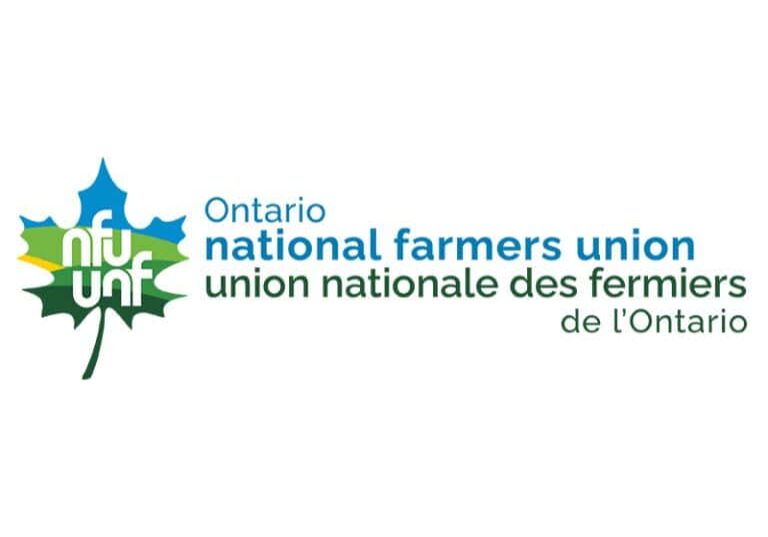Re: ERO 025-1099 Consultation on simplifying and standardizing official plans and ERO 025- 1097 Proposed Changes to the Planning Act (Schedule 10 of Bill 60 – the Fighting Delays, Building Faster Act, 2025)

November 19, 2025
Hon. Rob Flack
Ministry of Municipal Affairs and Housing
777 Bay Street, 17th
Toronto, Ontario M7A 2J3
Re: ERO 025-1099 Consultation on simplifying and standardizing official plans and ERO 025- 1097 Proposed Changes to the Planning Act (Schedule 10 of Bill 60 – the Fighting Delays, Building Faster Act, 2025)
Minister Flack,
The National Farmers Union – Ontario (NFU-O) is an accredited farm organization representing sustainable farmers in Ontario and has advocated for farmers across Ontario since 1969. NFU-O policy calls on all levels of government to enact and follow transparent, rational planning guidelines, regulations, and bylaws to ensure fairness to all citizens, to protect farmland and ecologically sensitive areas from development, and to prevent the further privatization of public lands.
The proposed legislative and regulatory changes under the Proposed Changes to the Planning Act (Schedule 10 of Bill 60 – the Fighting Delays, Building Faster Act, 2025) and the Consultation on simplifying and standardizing official plans around official plans and Minister Zoning Orders (MZOs) raise significant concerns for the long-term protection of finite and invaluable Ontario farmland. While we commend the Ontario Government for making some positive changes like quicker development of septic systems for on-farm worker housing, the NFU-O is opposed to guidelines that erode protective regulations for farmland and natural heritage lands, and that diminish transparent, democratic decision-making. Without strong regulatory mechanisms that are complementary to agriculture and development, the future of Ontario’s farmland and food security are at risk.
Official Plans
The proposed legislative and regulatory changes under the Consultation on simplifying and standardizing official plans outline provisions for streamlining official plans in order to quicken the development approval process. Section B of the Consultation on simplifying and standardizing official plans proposes limiting the amount of pages or words of official plans, and suggests the criteria potentially be based on population in the following discussion questions. While we recognize Ontario’s urgent housing needs, this approach poses a significant threat to agriculture, as municipal needs vary regionally. Basing the page or word count of an official plan on population size has the potential to reduce or eliminate key agricultural provisions like Agricultural Impact Assessments (AIA’s).
The NFU-O recommends that there are no page or word count limitations introduced to official plans, and that official plans require key agricultural protections like AIA’s to be triggered for new developments in a standardized manner across all municipalities through the Planning Act.
MZOs
Changes are suggested in the Proposed Changes to the Planning Act (Schedule 10 of Bill 60 – the Fighting Delays, Building Faster Act, 2025) to remove the regulation status of MZOs in order to streamline processes, facilitate faster decisions, and support provincial development priorities. Removing MZOs as a regulation under the Planning Act will give the Minister sweeping powers to override the Provincial Planning Statement and the agricultural protections therein. This leaves our finite farmland and agricultural resources vulnerable to development without the consideration of factors like prime agricultural land, specialty crop areas, agricultural natural heritage preservation, the agricultural systems approach, restricting non-agricultural development, prohibiting land fragmentation, and focusing growth in settlement areas.
The NFU-O recommends that MZOs should be an exception to the rule, as they were originally intended. Despite the fact that development proposals should undergo proper review processes, MZOs have been increasingly popular in recent years to help accelerate development approvals. This new provision allows for a favouring of development over agricultural protection. While we recognize Ontario’s urgent housing needs, we maintain that development decisions should always involve thorough and rigorous assessment, the application of the precautionary principle, and ensuring that agricultural land is not sacrificed for development priorities.
Conclusion
The NFU-O urges the Ontario Government to ensure that legislative and regulatory changes reflected in the Proposed Changes to the Planning Act (Schedule 10 of Bill 60 – the Fighting Delays, Building Faster Act, 2025) and the Consultation on simplifying and standardizing official plans do not come at the expense of the province’s invaluable farmland or the democratic processes that safeguard it. Transparent regulatory frameworks are essential to balancing housing needs with long-term food security and environmental stewardship. We emphasize that Official Plans must retain the detail required to address regional agricultural considerations, and that MZOs must remain as exceptions to the rule, rather than mechanisms for bypassing due process. Ontario’s farmland is a finite resource, and once lost, it cannot be recovered. Thoughtful, precautionary planning today is essential to preserve a sustainable food system for future generations.
Sincerely,
Max Hansgen,
President, National Farmers Union – Ontario
Re: ERO 025-1099 Consultation on simplifying and standardizing official plans and ERO 025-1097 Proposed Changes to the Planning Act (Schedule 10 of Bill 60 – the Fighting Delays, Building Faster Act, 2025)








